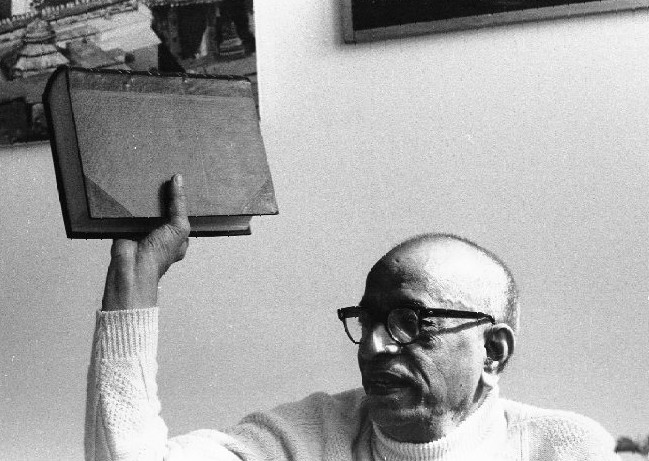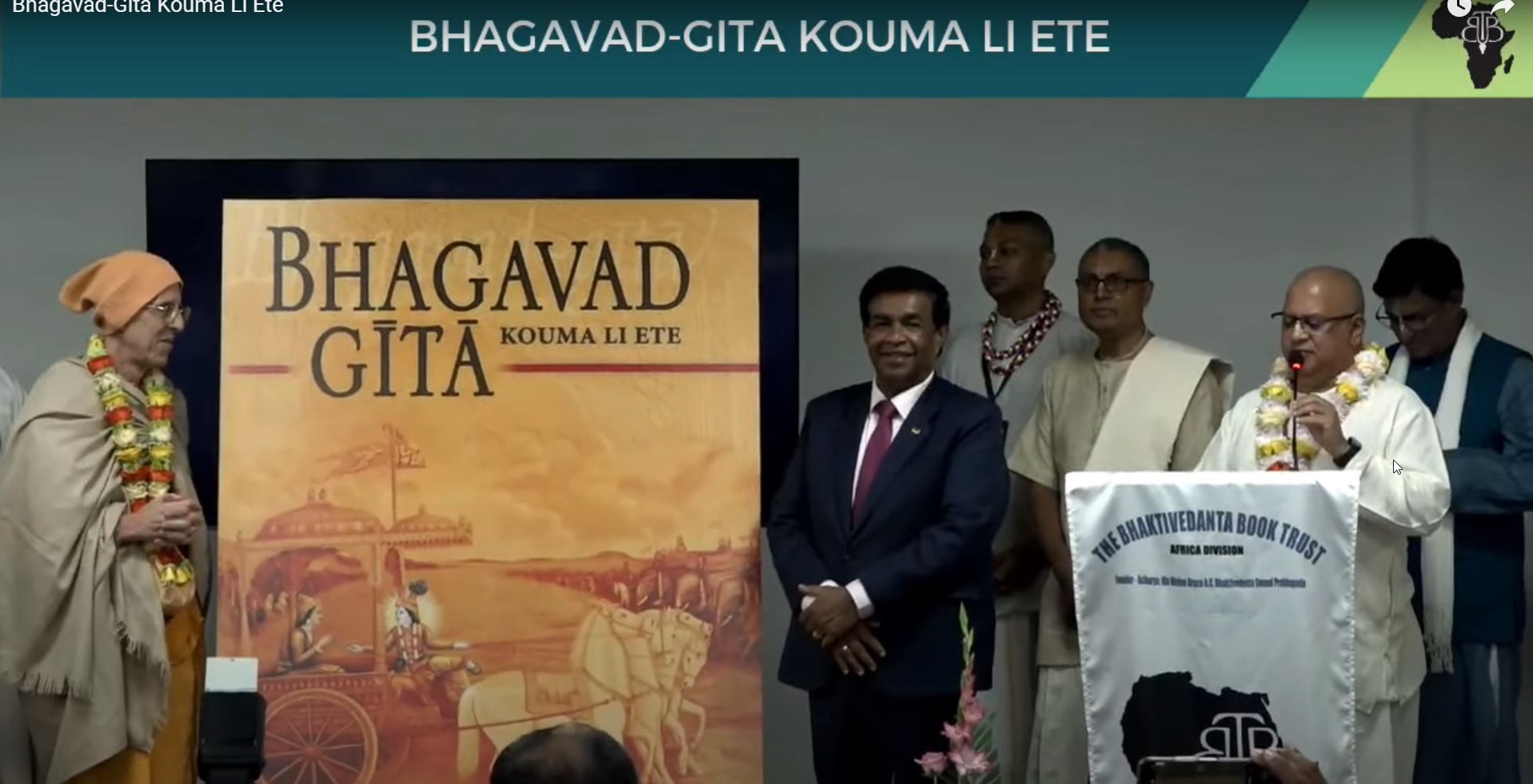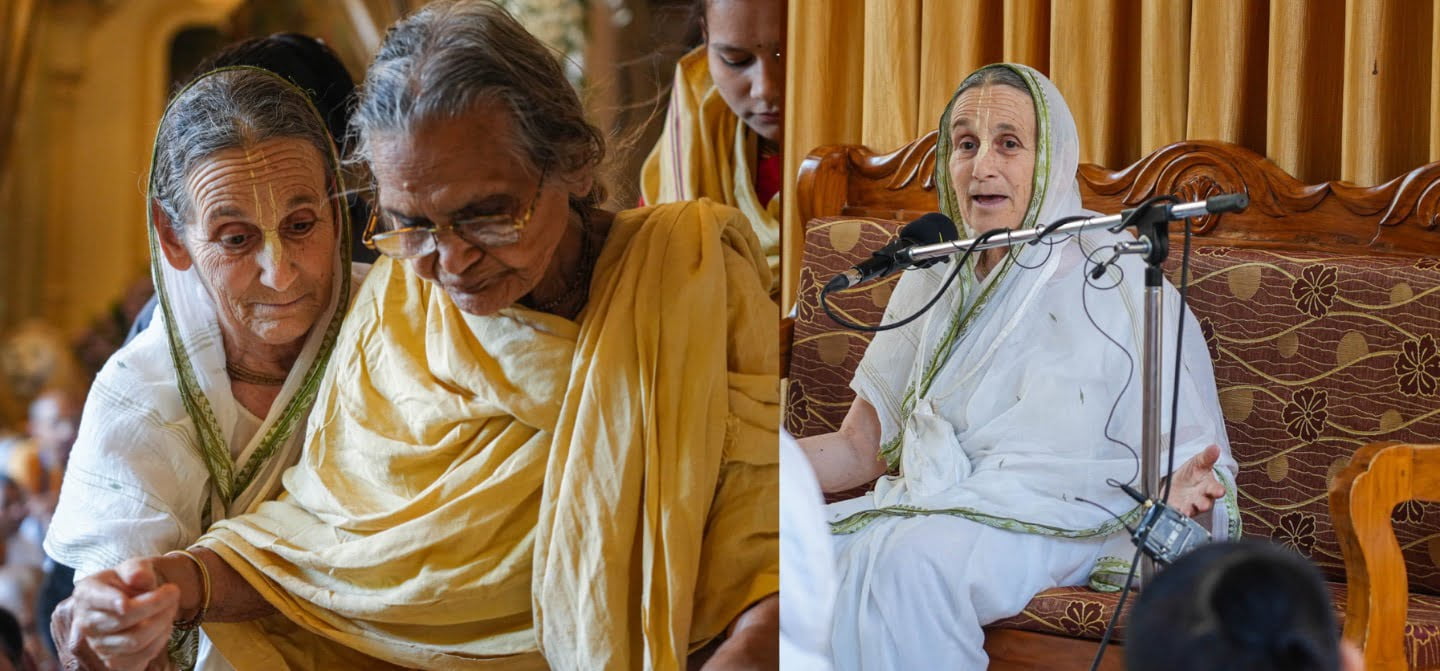Books for the Future
By Mukunda Goswami | Nov 28, 2010

The following essay is a modification of an editorial published circa December 1996 for the ISKCON World Review, that later became the Hare Krishna World newspaper.
Like everything else in the material world, books have only transitory value. Even the so-called great classics will one day be reduced to footnotes and ultimately disappear from view.
Scripture has endured longer than any other type of writing. And among all scripture, the Vedas (which originated in the part of the world now known as India) are the oldest and most voluminous. Of Vedic teachings, the most succinct, relevant, and practical, are those written by Srila Prabhupada, (Founder of the International Society for Krishna Consciousness or ISKCON). His works stand alone.
But who will accept his own assertion that his writings books would act as the lawbooks for the future of humanity?
Can we say something objective about these books? Like how do they influence our world today and how will they affect its future?
Here are a few facts: Srila Prabhupada’s books contribute to the world’s philosophical and theological body of knowledge; they enrich the literary heritage of the planet; they provide academics with a reference point to understand the nature of the Vedic way; they bring personal fulfillment and satisfaction to their readers; they help convince us that ultimate knowledge dwells within the hearts and minds of the great sages; they act as an instruction manual by which one can live successfully in the material world; they present solutions to contemporary problems; they fulfill the desire of spiritual predecessors to spread the message of love of God; they provide an alternative to materialism; they explain the nature of existence; they answer many of the most probing philosophical questions such as “who am I?”, “who is God?”, “what is time, nature, and destiny?”, and “where I am going?”.
From 1967 to 1977, despite advanced old age, Srila Prabhupada circled the globe almost continually, lecturing and managing ISKCON, the Hare Krishna movement. Nonetheless, during all this travel, he wrote continuously. His books are printed in more than 34 languages.
In his books and in his personal life, he advocated “simple living and high thinking,” voluntary simplicity, and a happy peaceful life with Krishna (God) in the center. He wrote as a full-time practitioner and personally followed the philosophy he wrote about. In his books he teaches a complete science of life.
Introduced in the 1980s in many leading universities, his books are current in many of them, having found a true home in a large sector of academia.
Most members of ISKCON commit themselves to the philosophy, practice and spreading of Krishna consciousness because of the knowledge in Srila Prabhupada’s books. He had an agenda for social change. Those who read his books came to understand this, and perceived a sense of urgency for propagating Vedic knowledge. Students of Srila Prabhupada’s books still hope for such change and many work vigorously for it.
During his time as a renunciant (1959-1977), Srila Prabhupada constantly encouraged widespread distribution his books as the top priority. He indicated that these writings would gradually implement change. In the preface to his Srimad Bhagavatam he quotes from Canto 1, chapter 5, text 11, wherein it said that transcendental literature about would bring about “a revolution in the impious life of a misdirected civilization.”
Thus individuals and organizations that disseminate these books, take part in a process of social change, and a method for making the world more God-centered, less polluted and thus more livable. This, Srila Prabhupada called the “highest welfare work.”
The publication and distribution of these writings, forms the basis of the Krishna consciousness movement. The knowledge contained therein brings about a thirst and a thrust for positive social change.












